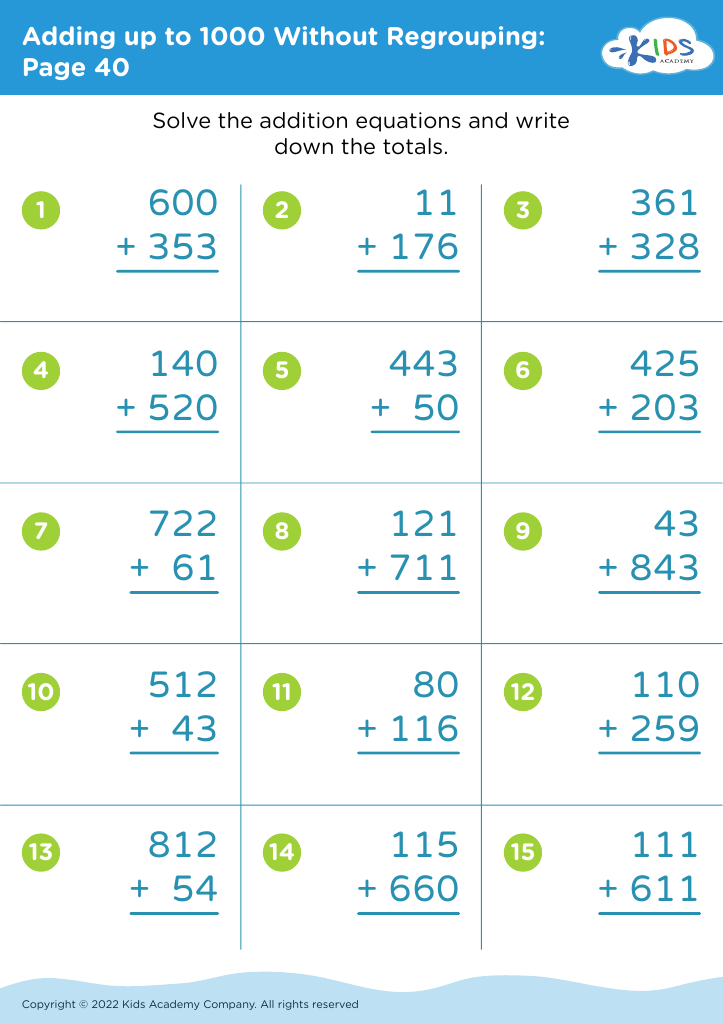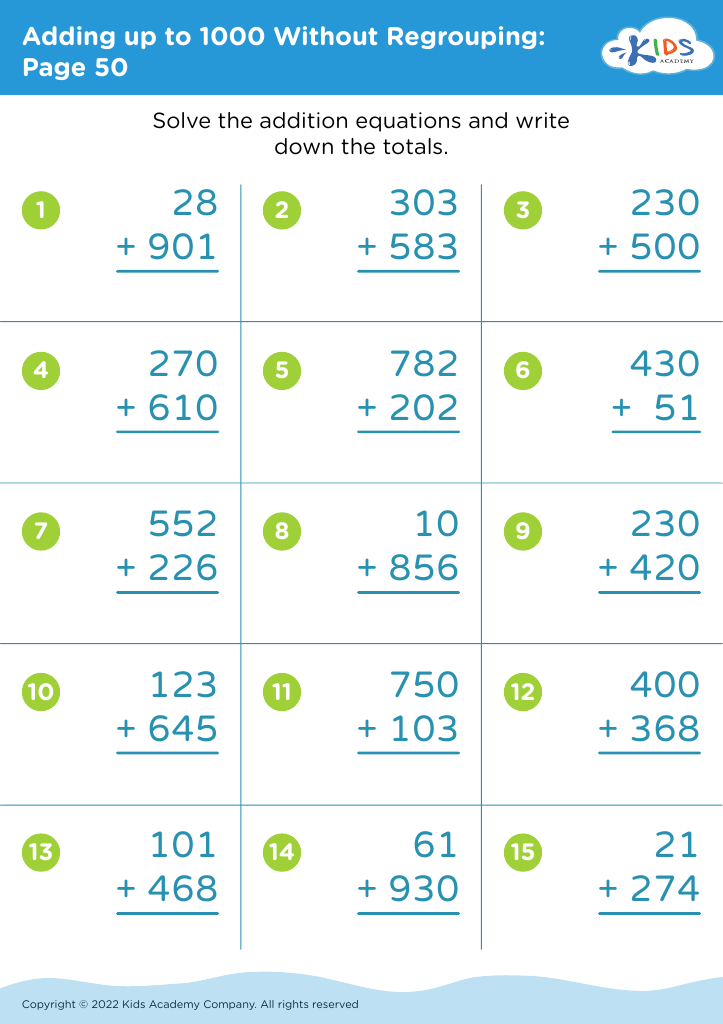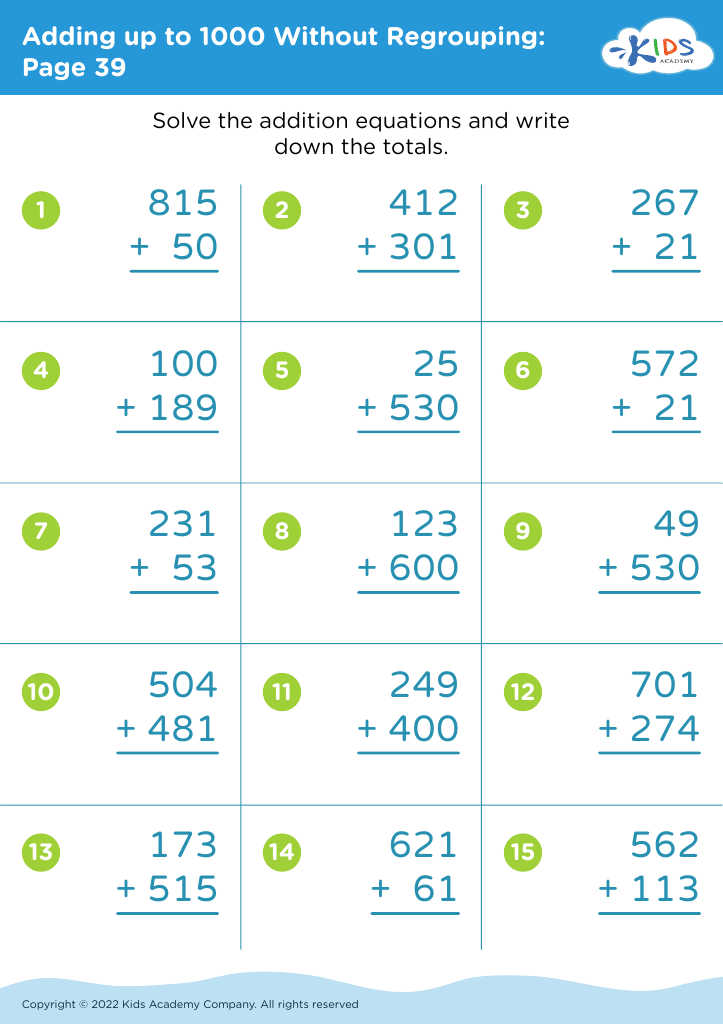Alphabet Recognition Adding up to 1000 Worksheets for Ages 3-7
4 filtered results
-
From - To
Discover our engaging "Alphabet Recognition Adding Up to 1000 Worksheets for Ages 3-7" at Kids Academy. Specially designed for young learners, these printable worksheets combine fun alphabet recognition with essential math skills. Children will enjoy colorful, captivating activities that seamlessly blend learning the ABCs with practicing addition up to 1000. Our expertly crafted resources support early literacy and numeracy development, making learning an exciting adventure. Ideal for use at home or in the classroom, these worksheets provide the perfect foundation for children to build confidence and excel in both reading and mathematics. Download today and watch your child's skills soar!
Alphabet recognition and basic mathematics, such as adding up to 1000, are foundational skills that set the stage for a child's academic success. For ages 3-7, the preschool and early elementary years, these skills are critical for several reasons.
First, alphabet recognition is the gateway to literacy. Children who can identify letters can begin to understand the sounds associated with each letter, which is essential for reading and writing. This early literacy fosters cognitive development and language skills, essential for effective communication. Children who master these skills early often find it easier to learn new concepts and subjects as they progress in school.
Second, mathematics skills, such as adding up to 1000, develop logical thinking and problem-solving abilities. These skills are not just about numbers but also about understanding patterns, sequencing, and spatial awareness. Kids who grasp these concepts early on tend to perform better not only in math but in all subjects that require analytical thinking.
In sum, nurturing alphabet recognition and arithmetic in ages 3-7 builds a solid foundation for future educational achievements. Parents and teachers play pivotal roles in facilitating this developmental stage. Activities like interactive games, reading together, and practical counting exercises make learning enjoyable and instill a lifelong love for learning in children.


















